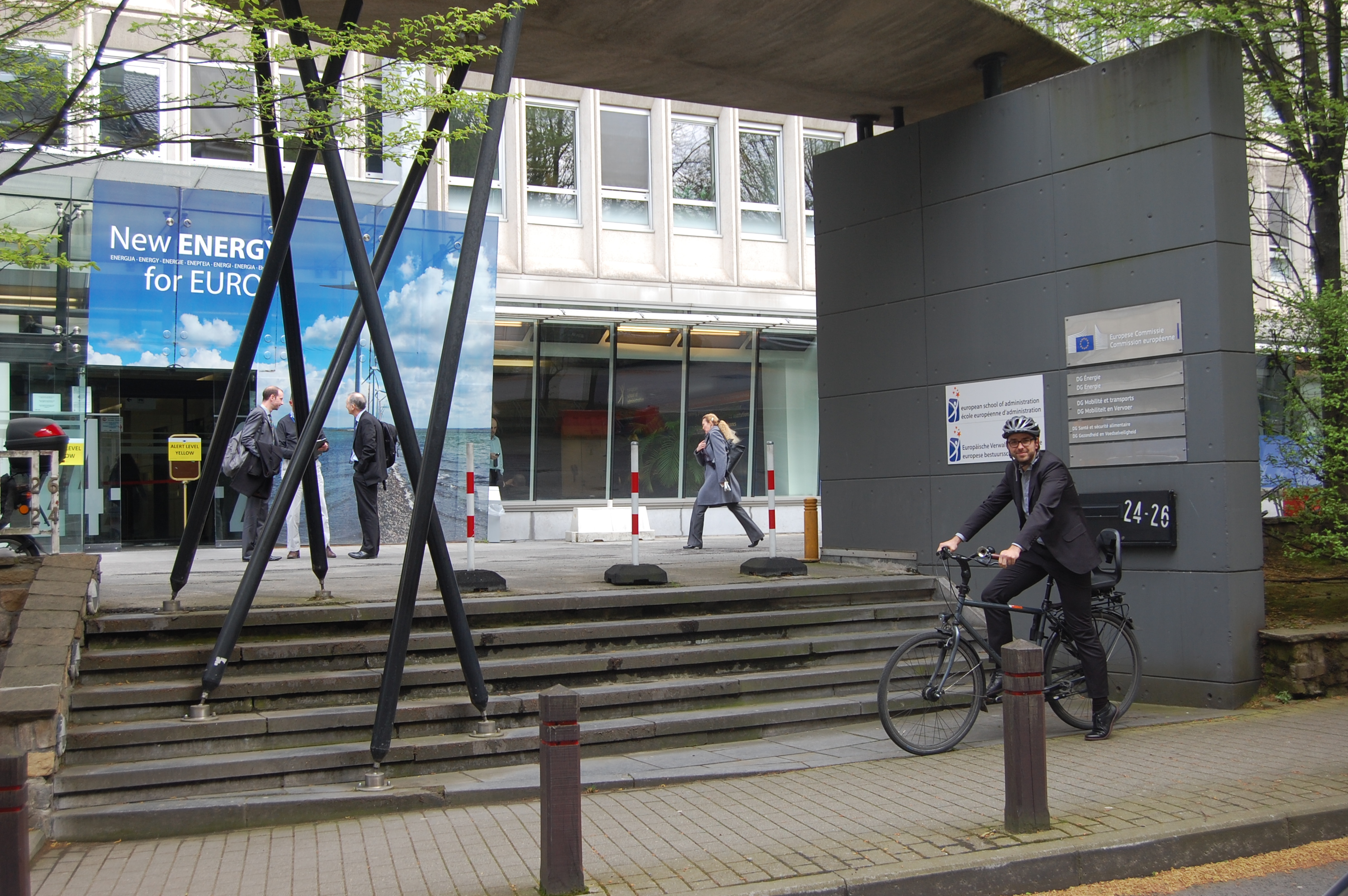
The very first European Commission’s Cycling Focal Point
Following the Declaration of Luxembourg adopted in October 2015, DG MOVE has appointed its very first “Cycling focal point”, Piotr Rapacz, which leads by example for the establishment of national cycling focal points through EU.
Enthusiast and willing to continue to support the process, the European Cyclists’ Federation has met the new European face for cycling and took the opportunity to hold a short interview with him (15th of March).
1. This is the first time there is a cycling contact point in the European Commission. Why this change now?
 With COP21 agreement in Paris last year, there is urgency to act, and do more to render mobility more sustainable. There is definitely a momentum within the European Commission, everybody can see it, everybody can feel it. There is the Luxembourg Declaration and regions and cities that are calling for it. There is globally a positive feeling toward cycling.
With COP21 agreement in Paris last year, there is urgency to act, and do more to render mobility more sustainable. There is definitely a momentum within the European Commission, everybody can see it, everybody can feel it. There is the Luxembourg Declaration and regions and cities that are calling for it. There is globally a positive feeling toward cycling.
However, we certainly do not start from scratch: there are many years of EU support to cycling with the initiatives such as CIVITAS and the European Mobility Week. The Commission also supports cities when it comes to the Sustainable Urban Mobility Plans (SUMP) where cycling has an important role to play. This is in line with the goals of 2011 Transport White Paper and the 2013 Urban Mobility Package.
2. What do you want to achieve? What will be your first task?
The final goal is to strengthen a proper recognition of cycling as a mode of transport. It won’t happen overnight. But cycling is part of the answer to a lot of today’s challenges such as congestion, climate change, poor air quality in cities, and health problems due to inactivity.
Assigning a contact point in DG MOVE will allow better connections with stakeholders. This will help us get a better understanding of the needs of cyclists. Bringing stakeholders together will also help by strengthening networks and cooperation in this area.
3. How will the cycling contact point work? Will it be a unit?
The first task is to mainstream cycling within the transport policy but also among other relevant policies. Cycling is related to several topics and policy areas: transport and urban mobility, safety, air quality and environment, decarbonisation, health, type approval of vehicles, tourism, etc.
The contact point will facilitate the cooperation within the Commission, especially within the inter-services group on “urban mobility”, putting a focus on cycling.
A first concrete step is the dedicated page for cycling on the EUROPA website which will provide information both for external stakeholders and for the colleagues in the Commission.
4. Is the European Commission an encouraging employer for cycling?
For the time being, almost 11% of Commission colleagues come to work by bike, which is not a bad result when you compare it with the share of cyclists in Brussels. There are also 240 service bicycles available for staff members who wish to cycle from one building to another. Finally, the Commission encourages participation in the Bike to Work programme.
Within the Commission, there is also the “EU Cyclists' Group”, bringing together cycling Commission colleagues to promote more cycling friendly policies and to increase the number of colleagues coming by bikes to work.
5. And how would you present yourself regarding cycling?
I am a daily cyclist since I came to Brussel in 2005. I cycle to work every day. When I was living in Poland, I was cycling as much as possible, even though Krakow, at that time, was not particularly bike-friendly. For the last decade, I’ve seen a lot of changes in Brussel: better behaviours of drivers, better infrastructure. But there is still a long way ahead of us. As cycling every day, I can feel the positive impact of cycling, it makes me even more committed.
Everybody should treat the bike as one of the many modes of transport. Cycling can be the response to a lot of challenges: climate change and air quality obviously, but also health and even budgetary problems and social relations.
Let's get more people to recognise it!

Credits: ECF - Piotr Rapacz in front of the DG move buildings
You want to contact the European Commission's Cycling Focal Point?
Here is the email address MOVE-CYCLING@ec.europa.eu
Regions:
News category:
Topics:
Contact the author
Recent news!
Upcoming events
Contact Us
Avenue des Arts, 7-8
Postal address: Rue de la Charité, 22
1210 Brussels, Belgium









